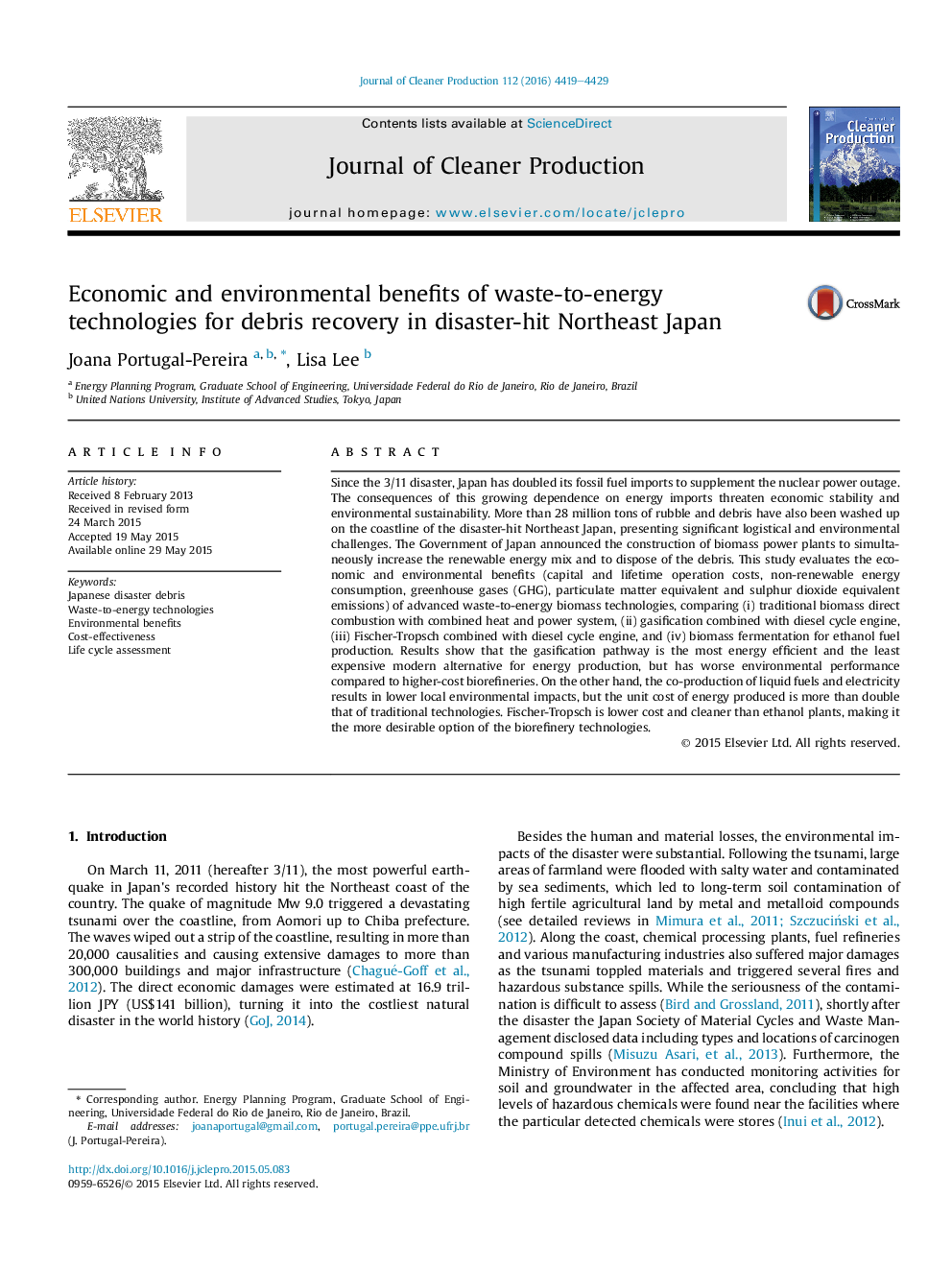| کد مقاله | کد نشریه | سال انتشار | مقاله انگلیسی | نسخه تمام متن |
|---|---|---|---|---|
| 10687984 | 1017969 | 2016 | 11 صفحه PDF | دانلود رایگان |
عنوان انگلیسی مقاله ISI
Economic and environmental benefits of waste-to-energy technologies for debris recovery in disaster-hit Northeast Japan
ترجمه فارسی عنوان
مزایای اقتصادی و محیط زیست فن آوری های زباله به انرژی برای بازیافت زباله در ژاپن در شمال شرق ژاپن
دانلود مقاله + سفارش ترجمه
دانلود مقاله ISI انگلیسی
رایگان برای ایرانیان
کلمات کلیدی
بقایای فاجعه ژاپنی، فن آوری های زباله به انرژی، مزایای زیست محیطی، هزینه بهره وری، ارزیابی چرخه حیات،
موضوعات مرتبط
مهندسی و علوم پایه
مهندسی انرژی
انرژی های تجدید پذیر، توسعه پایدار و محیط زیست
چکیده انگلیسی
Since the 3/11 disaster, Japan has doubled its fossil fuel imports to supplement the nuclear power outage. The consequences of this growing dependence on energy imports threaten economic stability and environmental sustainability. More than 28Â million tons of rubble and debris have also been washed up on the coastline of the disaster-hit Northeast Japan, presenting significant logistical and environmental challenges. The Government of Japan announced the construction of biomass power plants to simultaneously increase the renewable energy mix and to dispose of the debris. This study evaluates the economic and environmental benefits (capital and lifetime operation costs, non-renewable energy consumption, greenhouse gases (GHG), particulate matter equivalent and sulphur dioxide equivalent emissions) of advanced waste-to-energy biomass technologies, comparing (i) traditional biomass direct combustion with combined heat and power system, (ii) gasification combined with diesel cycle engine, (iii) Fischer-Tropsch combined with diesel cycle engine, and (iv) biomass fermentation for ethanol fuel production. Results show that the gasification pathway is the most energy efficient and the least expensive modern alternative for energy production, but has worse environmental performance compared to higher-cost biorefineries. On the other hand, the co-production of liquid fuels and electricity results in lower local environmental impacts, but the unit cost of energy produced is more than double that of traditional technologies. Fischer-Tropsch is lower cost and cleaner than ethanol plants, making it the more desirable option of the biorefinery technologies.
ناشر
Database: Elsevier - ScienceDirect (ساینس دایرکت)
Journal: Journal of Cleaner Production - Volume 112, Part 5, 20 January 2016, Pages 4419-4429
Journal: Journal of Cleaner Production - Volume 112, Part 5, 20 January 2016, Pages 4419-4429
نویسندگان
Joana Portugal-Pereira, Lisa Lee,
